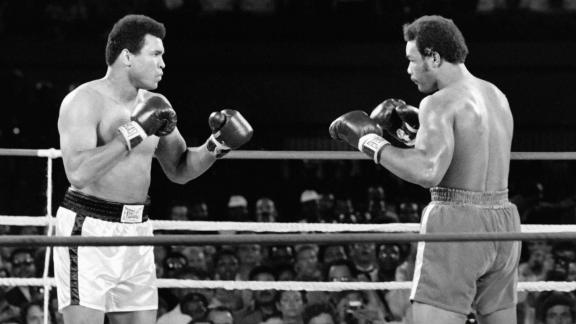The year was 1974, long before many of today’s rising sales stars were even a twinkle in their parents’ eyes. The setting was Kinshasa, Zaire. The heat was sweltering. The humidity exceeded 90 percent. Muhammad Ali, who had been stripped of his world heavyweight title and banned from boxing for three years for his refusal to enter the draft, was about to face undefeated George Foreman, the reigning champion and Olympic gold medalist. Ali was a massive underdog. The “Rumble in the Jungle” was about to begin.
What happened next was one of the greatest moments in sports history.
Speed and technical ability were Ali’s advantages. Strength and power were Foreman’s. After the first round, each had landed punches, but Ali’s signature style meant that me moved around a lot more than Foreman, and was going to tire out faster. He needed to switch tactics if he was going to survive.
In the second round, Ali backed against the ropes and crouched with his head behind his arms. He let Foreman swing and land many punches (though none that earned Foreman points). This constant punching began to wear out Foreman. The “rope-a-dope” strategy would prove to be a genius adaptation.
By round eight, Foreman began to falter. He’d been swinging away at Ali against the ropes, but Ali was adept at landing straight shots to Foreman’s face. Ali threw a five-punch combination, ending with a right jab that sent Foreman to the mat. The referee counted slowly to eight. The bell rang. Ali had won.
More than a billion people — 25% of the world’s population!– watched that fight on live TV or via pay-per-view on closed circuit TVs in auditoriums all over the world (remember, 1974: long before streaming or satellite TV). It remains one of the most compelling events in sports history.
What does any of it have to do with sales?
Ali could have stuck with his preferred method of fighting — dancing and floating around the ring to counter his opponent. But he would have lost. He knew he needed to adapt and switch tactics in order to win. Had he not adopted rope-a-dope, Foreman would have tired him out and overpowered him.
Often when sales reps and managers are confronted with a challenge or find that tactics they’ve used in the past no longer work, they’re reluctant to change course. They keep banging away hoping that more repetition will finally make things “click” and help them break through. Or they ignore emerging trends because those trends just don’t fit in with what they’ve been taught or are comfortable doing. But the best reps are like Ali. They make adjustments to their cadence and incorporate new material. They recognize the importance of adaptation. Today, that often means incorporating different outreach channels, like video, into prospecting methods. Or developing touch plans that deploy fact-based research instead of product benefit language (even though most reps are trained and more comfortable talking about product features).
Champions never stand still. Like Ali, they make bold changes at pivotal moments. Sales reps who want to reach the top of their game must do the same.



Leave A Comment